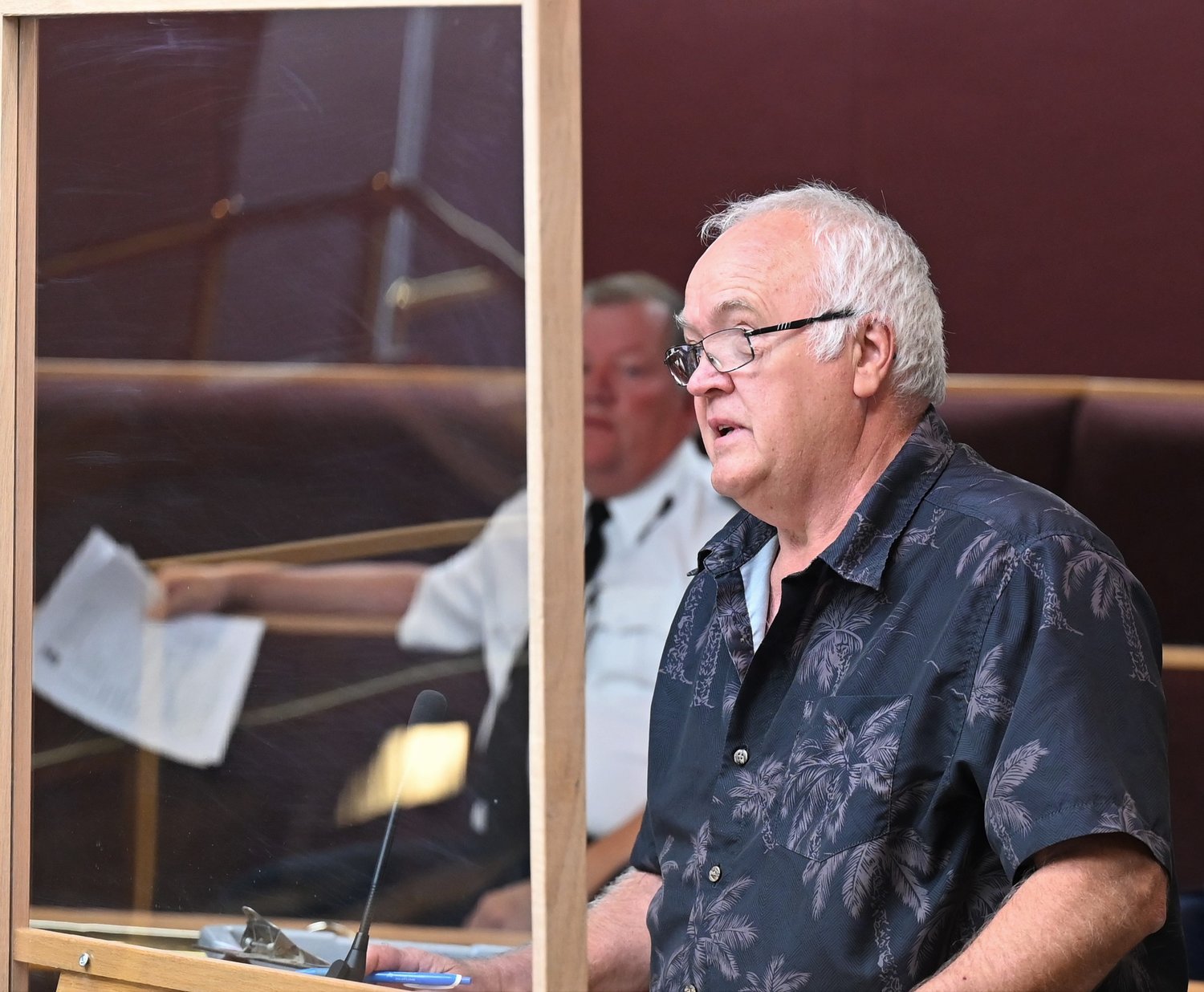Business Tax Fairness Champion Says Despite Change Assessment Rules Still Unfair
By Robert Thomas
It is all the case of the squeaky wheel getting the grease, but at the same time the squeaky wheel is not happy with what happened.
That’s a synopsis of the response from one of the business owners who fought the Saskatchewan Assessment Management Agency (SAMA) on the issue of cap or capitalization changes and the effect that had on commercial property assessments.
“We all spent two years fighting that I don’t know him. They change it to quiet the squeaky wheel,” small business owner Bernie Dombowsky told MJ Independent.
Bernie Dombowsky speaks at Council with his concerns in September 2022 - MJ independent file photo
Dombowsky, who didn’t attend this past Monday’s regular Executive Committee meeting, said, despite the apparent win when it comes to capitalization rates on commercial properties that the whole issue raised a lot of questions.
“We all spent two years, of time and money, fighting that through appeals and on a whim they (SAMA) change it to quiet the squeaky wheel,” he said.
Dombowsky along with Kristy Van Slyck were the catalyst behind the group Property Assessment Watchdogs a group of local small businesses and residents who fought for what they saw is unfair commercial property assessments targeting small business property owners.
At Monday’s meeting of Executive Committee the committee discussed and accepted the 2023 tax policy.
As part of that policy Executive Committer learnt SAMA had made changes to not only the cap rate and different commercial property classes but at the same time reduced the number of commercial property classes and sub classes.
The issue for Property Assessment Watchfogs centered around changes made to the cap or capitalization rate by SAMA as part of the 2021 reassessment.
Previously, there had been one cap rate for all commercial property, but in the 2021 reassessment SAMA changed the cap rate from one rate to 17 different commercial property groups.
Changes to the cap rate were seen as unfair and punishing to local small business leading to the two-year battle Dombowsky and other small business property owners had with SAMA.
A popular satirical cartoon poking fun at the various valuation assigned to properties
“These appeals should have been won,” he said, adding that the changes proved the group’s point it all came down to the assessors’ discretion as to what commercial property owners ultimately paid in property taxes.
For Dombowsky the entire system is rigged in the favour of the assessor, SAMA, who can simply assign property valuations based upon assessors discretion, which due to legislation cannot be successfully challenged on appeal by small commercial property owners.
Dombowsky said, despite the apparent victory by his group, that for many it does not feel like a victory but rather take it, or leave it attitude from SAMA.
“It is an attitude that we should be happy with what we got but many small businesses who are calling me or saying there have to be a lawsuit here.”
He said the reason why the small business property owners which have contacted him are not happy is because they had to not only appeal and ultimately lose those appeals of the property taxes but at the same time for two years they’ve had to subsidize other business property owners that changed in the last reassessment.
“For two years, the small retailers we’re paying a portion of taxes for the larger corporations,” he said.
The mood is not one of jubilation by the small business owners who contacted him to say thank you rather one of frustration.
“They are madder than ever,” he said, adding “their voices, are louder than ever before. They are upset after having to pay higher property taxes for two years.”
Dombowsky said there were no real changes other than how SAMA employed the cap rate in the formula to achieve the lower assessment rates for small retail properties.
“It’s the exact same sales data, and they (SAMA) came up with a completely different set of results. That tells you they (SAMA) made mistakes when they came up with that.”
“They are correcting their mistakes and think that we will be satisfied with that…we aren’t,” Dombowsky said.
Asked about the impact the changes in cap rates will have on his business Dombowsky said it will bring his taxes down, but due to the fact he had yet to receive his tax notice, he was unaware by how much.
One area he is concerned about is that the cap rate change for small restaurants will mean “higher taxes for smaller local restaurants who have gone through so much during the pandemic and can’t afford this.”
Dombowsky vowed to continue the fight on what he saw as not being tax fairness for local small businesses including smaller restaurants, who will be hit hard by the changes.
“ I think I’m going to have to make another video about this and go to City Hall with it,” he said.
As part of their fight for what they saw as unfair tax policy Dombowsky released a video demonstrating what he saw is unfairness in commercial property taxes.
The video was viewed by thousands of people and was seen by many as instrumental in driving the point home to Council and the community.


